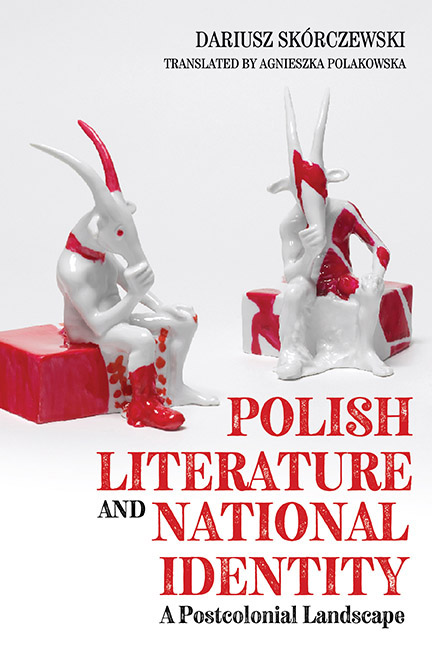Book contents
- Frontmatter
- Dedication
- Contents
- Acknowledgments
- Prologue: How It All Began
- 1 Through the Lens of Humanism, with a View to Transcendence
- 2 Postcolonialism in Poland
- 3 National Identity in a Postcolonial Framework: Necessary Clarifications and Opening Suggestions
- 4 Literature as Compensation: Comprador Intelligentsia vis-à-vis the Hegemonic Discourse—Preliminary Theoretical Remarks
- 5 Confronting the Romantic Legacy
- 6 The Natives’ Exclusion by the Empire's Poet? (Adam Mickiewicz, The Crimean Sonnets)
- 7 Identity as an Object of Inquiry (Pawel Huelle's Castorp)
- 8 The (East-)Central European Complex (Andrzej Stasiuk, On the Road to Babadag and Fado)
- 9 Colonized Poland, Orientalized Poland: Postcolonial Theory and the “Other Europe”
- 10 Slavic Issues with Identity: Marginal Notes to Maria Janion's Uncanny Slavdom
- 11 The Melancholia of Borderlands Discourse
- Afterword: Three Warnings
- Notes
- Bibliography
- Index
7 - Identity as an Object of Inquiry (Pawel Huelle's Castorp)
Published online by Cambridge University Press: 25 March 2020
- Frontmatter
- Dedication
- Contents
- Acknowledgments
- Prologue: How It All Began
- 1 Through the Lens of Humanism, with a View to Transcendence
- 2 Postcolonialism in Poland
- 3 National Identity in a Postcolonial Framework: Necessary Clarifications and Opening Suggestions
- 4 Literature as Compensation: Comprador Intelligentsia vis-à-vis the Hegemonic Discourse—Preliminary Theoretical Remarks
- 5 Confronting the Romantic Legacy
- 6 The Natives’ Exclusion by the Empire's Poet? (Adam Mickiewicz, The Crimean Sonnets)
- 7 Identity as an Object of Inquiry (Pawel Huelle's Castorp)
- 8 The (East-)Central European Complex (Andrzej Stasiuk, On the Road to Babadag and Fado)
- 9 Colonized Poland, Orientalized Poland: Postcolonial Theory and the “Other Europe”
- 10 Slavic Issues with Identity: Marginal Notes to Maria Janion's Uncanny Slavdom
- 11 The Melancholia of Borderlands Discourse
- Afterword: Three Warnings
- Notes
- Bibliography
- Index
Summary
Hailing Paweł Huelle's novel Castorp in 2004, Polish critics often compared it to Thomas Mann's The Magic Mountain and looked in it for traces of Mann’s characters and leitmotifs, including the narrator, philosophical discussions of the epoch, reflections on sickness and death, the experience of time, and, first and foremost, the “figure on loan.” The book itself seemed to invite these types of interpretations. Successive layers of the work's palimpsestic structure were thus peeled away to reveal its allusions and references to other source texts, literary genres, and musical forms. Simultaneously, critics underlined the difficulty of the task undertaken by the Polish writer in using The Magic Mountain as an intertext.
There exists in literature a fashion of writing either sequels or prequels to existing canonical narratives. It is the kind of apocryphal tradition that Huelle's novel certainly falls within. I do not intend here to follow the path already well trodden by critics, however, and compare the work of the Gdańsk-based author with that of his German predecessor in order to assess the prequel's success. I also will not pursue the trail already taken up in many reviews of Castorp and search for elements of a coming-of-age story, a philosophical novel, a “postcard” from mythical Gdańsk, and so on. This journey goes in a different direction. For the situation in Huelle's Castorp is to some extent reminiscent of that which moved Jean Rhys to write Wide Sargasso Sea, a novel that “answers back” to the narrative told by Jane Eyre in Charlotte Brontë's famous romance.
The reconstruction, or rather deconstruction, of Bertha Rochester's fate in Rhys's work is contrapuntal in relation to its prototype in Brontë's narration, where her character is repulsive and almost entirely stripped of human traits. Rhys's Antoinette Cosway (for such is Bertha's actual name in Wide Sargasso Sea) attains the status of a literary protagonist who offers a counterpoint to Brontë's version of her biography by narrating it from her own, non-British point of view. It hardly needs saying that, while both stories come to an identical end—the madness and suicidal death of Antoinette (a.k.a. Bertha) in the fire at Thornfield Hall—what occurs beforehand belongs to different orders.
- Type
- Chapter
- Information
- Polish Literature and National IdentityA Postcolonial Landscape, pp. 136 - 159Publisher: Boydell & BrewerPrint publication year: 2020



